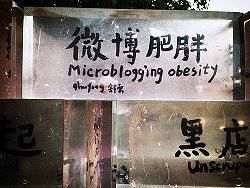Difference between revisions of "Atheism and gluttony"
Conservative (Talk | contribs) (→Atheism and morality) |
Conservative (Talk | contribs) (→Atheism and morality) |
||
| Line 59: | Line 59: | ||
== Atheism and morality == | == Atheism and morality == | ||
| − | Not possessing a [[Religion|religious]] basis for [[morality]] which provides a legitimate | + | Not possessing a [[Religion|religious]] basis for [[morality]] which provides a legitimate basis for objective morality, [[atheist]]s are fundamentally [[Moral_relativism|incapable]] of having a coherent system of morality.<ref> |
*[http://www.paulcopan.com/articles/pdf/God-naturalism-morality.pdf God, Naturalism, and the Foundations of Morality] by | *[http://www.paulcopan.com/articles/pdf/God-naturalism-morality.pdf God, Naturalism, and the Foundations of Morality] by | ||
Paul Copan | Paul Copan | ||
Revision as of 08:35, October 26, 2014
Gluttony is the inability to resist one's appetite. According to the Bible, gluttony is a sin.[1]
On the other hand, atheists engage in denialism concerning the existence of sin and indicate that sin does not exist. For example, the atheist PZ Myers, who possesses excess body weight (see: Atheism and obesity), denies the validity of the concept of original sin.[2]
Contents
Gallup Poll on the very religious, moderately religious and non-religious and health habits
According to the Gallup Inc., "Very religious Americans are more likely to practice healthy behaviors than those who are moderately religious or nonreligious."[3]
Studies on religion and self-control

See also: Gluttony and Atheism and hedonism and Atheism and obesity and Atheism and health
In the journal article Religion, self-regulation, and self-control: Associations, explanations, and implications, psychologists McCullough and Willoughby theorize that many of the positive links of religiousness with health and social behavior may be caused by religion's beneficial influences on self-control/self-regulation.[5][6] Furthermore, a 2012 Queen's University study published in Psychological Science found that religion replenishes self-control.[7][8] Also, numerous studies indicate that those who engage in regular spiritual practices have lower mortality rates.[9] [10]
See also:

A recent study published in the Obesity Reviews journal, found that Chinese teenagers' rate of diabetes was four times that of their American peers.[14] See: Atheism and obesity
Atheist organizations/groups and obesity:
Secular geographic areas and obesity:
Irreligion, age groups and obesity:
Atheism and morality
Not possessing a religious basis for morality which provides a legitimate basis for objective morality, atheists are fundamentally incapable of having a coherent system of morality.[15] For example, atheists have been the biggest mass murderers in history (see: Atheism and mass murder).
For more information, please see:
See also
Notes
- ↑ Bible verses on gluttony
- ↑ Who Cares?, PZ Myer at the Pharyngula, October 25, 2014
- ↑ http://www.gallup.com/poll/145379/Religious-Americans-Lead-Healthier-Lives.aspx
- ↑ http://www.mayoclinicproceedings.com/content/76/12/1225.full.pdf
- ↑ Religion, Self-Regulation, and Self-Control: Associations, Explanations, and Implications
- ↑ Religion, Self-Regulation, and Self-Control: Associations, Explanations, and Implications
- ↑ Religion Replenishes Self-Control, Psychological Science, June 2012 vol. 23 no. 6 635-642, Kevin Rounding, Albert Lee, Jill A. Jacobson and Li-Jun Ji at Queen’s University
- ↑ Study finds religion helps us gain self-control
- ↑ Religious involvement and mortality: a meta-analytic review. McCullough ME, Hoyt WT, Larson DB, Koenig HG, Thoresen C., Health Psychol. 2000 May;19(3):211-22.
- ↑ The role of spirituality in health care, roc (Bayl Univ Med Cent). 2001 October; 14(4): 352–357.
- ↑
- Top 50 Countries With Highest Proportion of Atheists / Agnostics (Zuckerman, 2005)
- A surprising map of where the world’s atheists live, Washington Post By Max Fisher and Caitlin Dewey May 23, 2013
- ↑ As Obesity Rises, Chinese Kids Are Almost as Fat as Americans, Wall Street Journal Chinarealtime, May 29, 2014
- ↑ Chubby China: Nation of 300 Million Overweight People
- ↑ Obesity is a growing concern in China By Pang Li, China.org.cn, September 14, 2012
- ↑
Paul Copan
- Can Moral Objectivism Do Without God? by Peter S. Williams
- Atheists and the Quest for Objective Morality by Chad Meister
- The failure of atheism to account for morality
